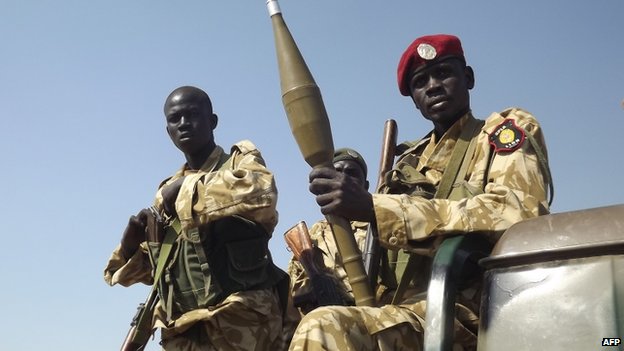They say a man’s character can be deciphered from the character of his friends. This holds true for nations as well, and I can as well say that South Sudan has taken little time to catch the bad manners of her friends or neighbours. For around three weeks now the nascent state of South Sudan has been enveloped in civil strife that is threatening the very dream of nationhood and statehood that took over twenty years to come from. See South Sudan has not taken long to catch the bad manners of her neighbours; most countries in the East and Horn of Africa have serious problems of ethnicity and tribalism. In Kenya the problem is pronounced; social economic and political value ascription assume ethnic dimensions. The country of 42 or so tribes is split almost right in in the middle, political coalescence and organization usually takes ethnic lines which at times have serious ramifications as is evident in the 2007 post-election chaos. In Ethiopia the Oromo (s) of South Eastern Ethiopia have been fighting for secession from Ethiopia since time immemorial. South Sudan has very strange peers for company.
If ever a country had to go through a lot just for its mere existence then South Sudan is one. For all but 11 of the 48 years since its independence in 1956, Sudan has been engulfed in civil conflict. The conflict between the North and the South erupted one year before Sudan gained its independence in 1955. South Sudan was born after 21 years of armed conflict between the government of Sudan (Khartoum) and Sudan People’s Liberation Army, led by John Garang Demabior. The end of the conflict came to an end with the signing of the Comprehensive Peace Agreement of 16th October, 2004 between John Garang Demabior and Osman Taha the immediate first vice-president.
South Sudan’s destiny changed bizarrely with John Garang’s death on July 30th 2005. Garang the larger than life liberation hero had a spirit that held the people of Southern Sudan together. His personal suffering and commitment for an independent South Sudan held his people together. With his death the fickle Salva Kiir and Riek Machar could flourish.
Salva Kiir of the Dinka tribe and his archenemy Riek Machar a Nuer have allowed fissures to occur in the independent state of South Sudan. They have allowed South Sudan to catch the endemic flu of tribalism that afflicts her neighbours without respite.
The current South Sudan conflict potentially destabilizes the Horn and Eastern Africa region. A lot in the region is hinged on the stability of South Sudan. The mega; road, rail, pipeline and Port project LAPSET (Lamu Port Southern Sudan Ethiopia Transport) project is hedged on the development of the South Sudan oil sector. The current crisis also put South Sudan’s aspirations to join the East African community in jeopardy. The negotiations were scheduled to start in March 2014.
But there is hope for South Sudan. Abdul Mohammed and Alex De Wall writing in the Washington Post asserts that, ‘there is an opportunity to halt South Sudan’s slide into war and state failure, but it must be seized within days or it will be lost. This requires the leaders of South Sudan to rise above narrow, tribalistic, zero-sum politics and develop a national program. President Salva Kiir and other members of the country’s political elite — in government and in opposition, inside South Sudan and in the diaspora — must respond to this challenge now or go down in history as having betrayed their people.’
Riek Machar and Salva Kiir have the opportunity to lead the nation further back from the precipice upon which South Sudan has a foot forward. They can make permanent the shadowy sense of unity that has been papered over especially after the internal revolt against Garang in 1991.
Kiir and Machar have an opportunity to get into the right sections of history books, by putting national interest ahead of personal interest. I hope we are not asking for too much from African leaders who have borrowed too much bad from so many bad examples.
[photo: South Sudanese soldiers loyal to President Salva Kiir, photo courtesy BBC]

